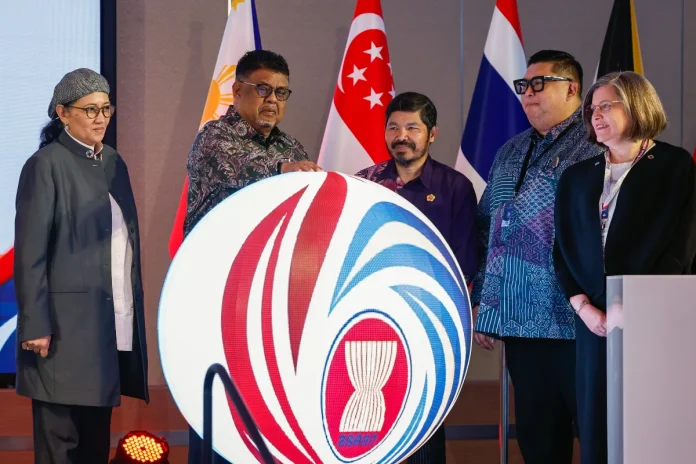Malaysia leads ASEAN in using AI and big data for inclusive statistics, enhancing policy decisions through advanced data collection and regional cooperation.
MELAKA: Artificial intelligence and big data analytics are transforming statistical management across Malaysia and ASEAN, driving more inclusive and accurate data collection.
Chief Statistician Datuk Seri Dr Mohd Uzir Mahidin said Malaysia’s leadership in statistics within ASEAN makes data-driven approaches essential for well-informed government policies.
“We previously relied heavily on macro figures, but now focus on inclusive statistics reflecting people’s realities across all socio-economic levels,” he told reporters after launching the ASEAN-Malaysia Statistical Forum 2025 and DOSM’s 75th anniversary.
Melaka Chief Minister Datuk Seri Ab Rauf Yusoh officiated the event at the venue here today.
Mohd Uzir explained that AI integration enhances efficiency and enables faster, more accurate decision-making for today’s fast-paced world.
Technologies like satellite imagery, remote sensing and mobile data analytics are reducing dependence on traditional field collection methods.
“In tourism, mobile movement data identifies popular destinations for targeted promotions, while satellite imagery and AI assess crop areas without field teams,” he said.
He emphasised that technology cannot completely replace traditional methods, which provide fundamental baseline data regularly updated with latest information.
Malaysia’s regional and global recognition for high-quality, accessible data demonstrates DOSM’s commitment to transparency and reliability.
The department developed the Virtual Academy Platform as a training hub for ASEAN countries to strengthen regional capacity in quality data production.
“Through this platform, we share expertise so other countries don’t start from scratch,” Mohd Uzir said.
He noted that over 20 officials from Laos recently attended training in Malaysia to learn about the statistical system.
Strengthening regional cooperation in statistics is vital for narrowing development gaps under the ‘prosper our neighbour’ concept.
“We don’t want wide disparities between countries, as regional progress requires all parties developing together,” he stated.
Malaysia and ASEAN are implementing the Sustainable Development Goals Dashboard for assessing socio-economic progress, poverty and sustainability.
“This dashboard enables statistical offices, ministries, agencies and the public to evaluate strengths and challenges for more inclusive, effective policies,” Mohd Uzir explained.
Meanwhile, Ab Rauf said the state government believes accurate data leads to sound policies contributing to national well-being.
“Statistics are vital for government planning and charting the future,” he said.
“In Melaka, we use such data as a compass to guide administrative direction and maintain focused objectives,” Ab Rauf added. – Bernama







